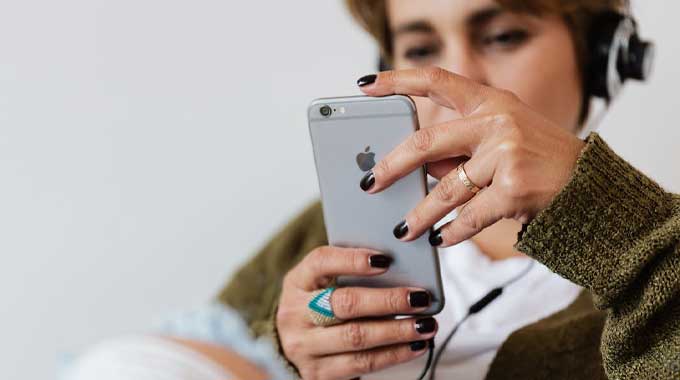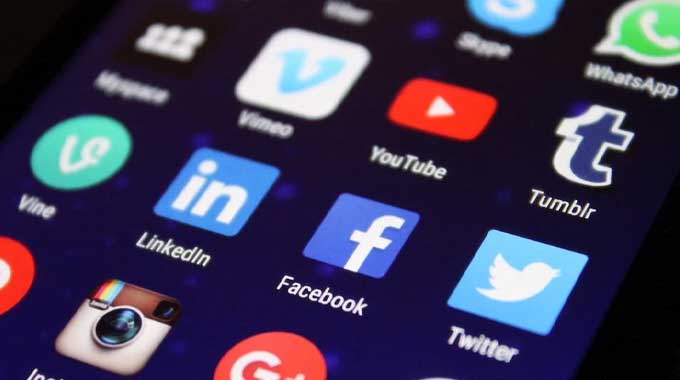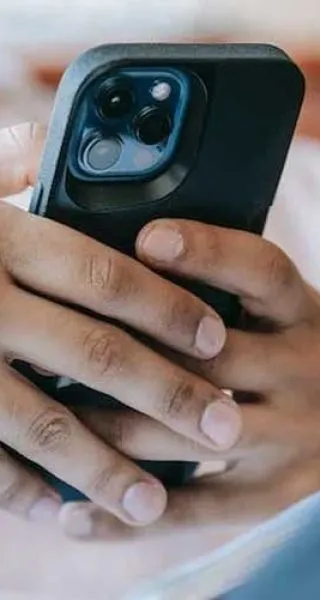We live in a digital world, and social media platforms hugely define the internet space information technology has created. Never before has humanity been so connected - at least online - and social media use is now so widespread it is a part of almost everyone's daily life.
But evidence suggests social media use can negatively affect mental health. Social media space can expose teenagers to risks such as cyberbullying, and the American Academy of Pediatrics warns that engagement with some social platforms can lead to depressive symptoms and worse.
But it's not just adolescent health or the well-being of young adults that is at risk - people of all ages can find their mental health is being impacted by excessive social media use.
What Social Media Does to Mental Health
According to the Pew Research Center, 77% of Americans now own a smartphone, and 72% use social media. The center also found that the most committed users are teens, 81% of whom are social media users. Unfortunately, social media usage appears to be strongly linked to several mental health problems. It can increase feelings of isolation, loneliness, and low self-esteem and lead to anxiety or mood disorders such as depression. At its worse, some people can be driven to self-harm or even suicidal thoughts.
Social platforms and social media apps provide users with an incessant flow of updates on posts by friends, celebrities, groups, or anyone they may be 'following'. For active users, this adds up to many people and leads to constant stimulation from incoming notifications.
Social media has completely transformed social interactions. From direct, face-to-face contact with other people, so much communication in our 'new' digital world has shifted entirely to the online space. But spending time on screens rather than in the tangible world doesn't appear to make people happier and create mental well-being. Excessive social media use can affect sleep quality and make it difficult to fall asleep, and cause an interrupted night - a contributing factor to depression and other mental health issues.

Compulsive Social Media Use
Compulsive social media use - that is, when people are unable to cut down on their social media time or limit the number of apps and social platforms they are active on - has become so prevalent that it is even commonly referred to as addiction. 40% of 18 to 22-year-olds admit to feeling 'somewhat' addicted to social media.
The similarity with addiction stems from the fact that looking at social media is a bit like playing a slot machine. The outcome is uncertain, but there is an emotional buzz of anticipation before discovering the unknown - in this case, what content, or what reactions to individual posts, will be revealed. And finding out the result is followed by a rush of dopamine.
Once the brain's reward centers are activated in this way, the user keeps going back for more. On opening a social media app, it's impossible to know how many likes, shares, or comments will greet the viewer - and the thrill of the unknown keeps them hooked. It is a form of instant gratification.
Social Media and FOMO
Fear of missing out, or FOMO, also plays a role in the compulsive checking of social media. People don't want to be left out if everyone else is on several different platforms, posting content and following trends and internet stars. There is also often a desire to 'fit in and belong' in online social circles by posting content in order to receive positive feedback - you receive a form of validation. This serves to boost self-esteem - but can, of course, have the opposite effect when the user is disappointed with people's reactions.
FOMO is not a rational fear, and social media addiction statistics reveal up to one-third of young adults feel uneasy when they're offline, and 22% of young people feel anxious when logged out because they can't check what's new and happening.
Time spent on social media can reach astonishing proportions too, with some people, in particular teens, spending several hours - in some cases seven or more - a day online. A 2019 study showed that adolescents spending more than three hours daily on social media are more prone to mental health problems such as social anxiety, depression, and aggression.
Young People Are Particularly at Risk
A US population-based study has shown a 37% increase in incidences of major depression symptoms in teenagers since the advent of social media. Although the two phenomena may not be directly linked, it's clear that teens are sensitive to how they are perceived by others on social media platforms. Almost half of the teenagers say they 'feel bad' if their post is not liked. This shows how much this age group can end up in the grip of social media, which in turn is affecting their mood and mental health.
Social media can create a distorted worldview in the minds of susceptible teens and the ideals they follow in terms of achievement, success, wealth, and more. They can become totally out of sync with real life. Furthermore, facing rejection, bullying, or humiliation on public platforms with large numbers of views can deeply affect the subjective well-being of teens and young adults and cause long-lasting emotional scars. Teen girls are the demographic most at risk here.
The Negative Impact on Self-esteem
Posts on social media apps are filtered, embellished, tweaked, and selected in order to portray people, their surroundings, circumstances, and accomplishments in the best possible - and often misleading - light. This includes physical ideals, an obsession with physical appearance, and what other people think can quickly develop.
Here again, teenage girls are particularly vulnerable, and this can morph into unhealthy behaviors. Seeing others who are perceived as having much better lives or have more likes, followers, and shares - in short, garner more attention, validation, and recognition - can trigger feelings of envy, jealousy, and inadequacy.
Adolescence is a time when children and young people go through huge hormonal changes - alongside physical and mental developments, and they strive to find their identity in the world. They are more easily influenced by social media interactions, and excessive use of social media apps has more negative effects on their psychological well-being than other age groups.

Social Media Use Can Affect Socializing Skills
Social media affects how people relate to each other offline too. Our teenage years are when we really begin to learn socializing skills - we begin to interact and connect with others and develop our personality and identity that we will carry into adulthood.
When adolescents are introduced to socializing through online contacts and acquaintances, they don't get the blueprint for normal, in-person relationships. When used to interacting from the safety of distance and the protection of a screen, they may lack confidence when face to face and, for example, struggle with social skills such as eye-to-eye contact.
A like or comment online gives a sense of instant connection, whereas in real life, people first have to greet each other, break the ice, talk, and get to know each other. Parents and other family members often teach their children these skills by example - but in families where everyone is becoming more and more 'online,' this may diminish.
According to the study quoted above by the Pew Research Center, American society went from 5% of social media users in 2005 to 75% of the population in less than 15 years. Excessive use of social media can lead to isolation, as time spent online means less time with offline friends. As a result, people tend to have fewer close friends.
Now, when in public spaces, people seem to talk to each other significantly less than before smartphones. There is less communication because everyone is absorbed in their phone, creating a sense of loneliness and disconnection from others and society.
In extreme cases, obsession with social media can lead to the break up of relationships. When one spouse spends more time online than with their real-life partner, problems can arise, and in the US, there are even cases where social media disagreements have led to divorce.
Happiness, Life Satisfaction, and Negative Emotions
Human beings are social creatures, and when starved of in-person physical contact with others, our mental health suffers. This was clearly apparent during the COVID-19 pandemic when Americans' mental health entered a significant slump.
People's online habits show they turn to social media thinking they'll feel good afterward. However, evidence suggests that, in fact, the exact opposite often happens. According to one study, looking at Facebook use specifically, most people actually feel worse after using the platform.
Meanwhile, a 2018 University of Pennsylvania study suggests that consciously limiting our time on social media not only makes us feel better but helps change our perception of social media as people learn from direct experience that social media doesn't actually make them feel as good as they thought.
In fact, social media interactions can give rise to intense feelings of envy, jealousy, and competitiveness. People can get caught in a vicious cycle of constantly trying to outdo perceived rivals by getting more followers, likes, and so on. But at each setback or each time they feel they're losing ground, they are compelled to make renewed efforts to regain their status. Online hate can be one of the most shocking aspects of social media use to witness.
Negative Effects on the Mind
Much of the content posted on social media is relatively generic and predictable. Influencers, YouTubers, Bloggers, and Vloggers all create content following similar templates around topics they know to hold appeal. While social media provides a space for self-expression, it also seems to encourage conformity and stunt critical thinking.
Too much time on social media and not enough energy devoted to other aspects of life means not only that people lose the healthy balance essential to mental health but also that they risk leaving unfulfilled their potential as individuals.
Ironically, social media itself can provide a platform to raise awareness of the risks it poses to mental health. Content posted by informed users can draw attention to the risky behaviors associated with social media use.

Positive Aspects of Social Media Platforms
It would be a mistake to overlook all the undeniable benefits of the existence of social media. Social media allows us to stay up to date with what's happening with friends and family all over the world in real time. Countless people have been able to track down long-lost friends or relatives on platforms like Facebook.
This and other platforms are also home to groups that connect people with similar interests or facing similar challenges. There are also groups that focus on the local communities where people actually live and facilitate sharing of information. They also enable communication between people who may then meet in real life - that would not have done so without social media.
Social media can have a positive impact by being a force for change, allowing people to get important messages out there - on anything from help for personal struggles to major global issues. It can keep people informed of upcoming events or even of potential dangers - live updates on the progression of a hurricane, for example.
Social Media and the COVID-19 Pandemic
During the pandemic, social interactions were limited due to restricted freedom of movement. Gatherings and group activities were made difficult by social distancing rules, and social media became something of a lifeline for many people. Being able to socialize on these platforms provided emotional support for many during challenging times. In this sense, in these unusual circumstances, social media use became potentially beneficial to mental health.
Since the pandemic, working life for many has transitioned to remote or online work, with many losing their jobs too. Social media platforms such as Instagram or LinkedIn have enabled countless people to build a new livelihood for themselves. For some young adults, social media has given them their start in professional life.
However, due to its potential for obsessive use, being active on social media is something to be very aware of and keep in check - the issue is, as with all addictions, it's not always easy to be aware of what's happening and voluntarily limit use.
Once social media use begins to impact mental health, mood disorders and other conditions negatively can start to interfere with all aspects of life. Further, if the negative social interactions that can take place on these platforms leave lasting emotional scars on vulnerable individuals, professional help may be necessary.
Mental Health Support at GIA Miami
At GIA Miami, we are that professional help. Whatever your struggle or that of a loved one, with the now ubiquitous and all-pervading world of social media, we can guide you in finding that healthy balance and feeling self-empowered once again.
If you feel social media is using you and not the other way, reach out to us for support tailored to your needs to regain a healthy balance, have more fun, and spend time in the real world with family and friends.

